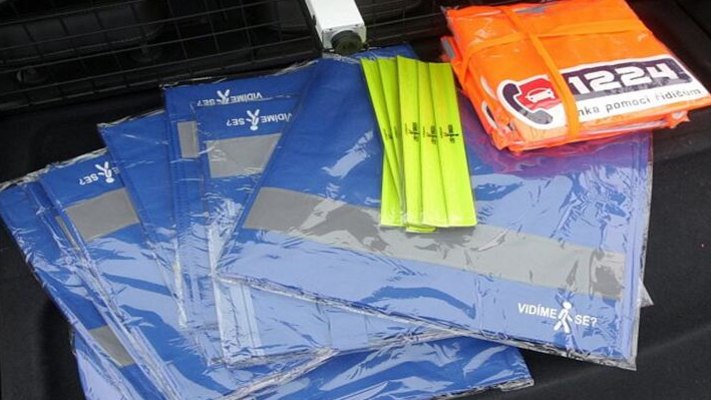If you go by road outside the village, you must have reflective elements on your clothing, such as a sleeve or a reflective vest. If not, there is a fine of up to two thousand dollars. In administrative proceedings, the penalty ranges from 1500 to 2500 crowns. Since Saturday, an amendment to the Road Traffic Act has been in force to wear reflective elements to pedestrians.
When traveling on the road, so-called non-motorized road users are the most vulnerable. In particular, pedestrians should ensure that they are clearly visible for a sufficient distance and that drivers can avoid them in time. The reality, however, is that people often walking down the road in dark clothes? The chauffeur is often seen at the last minute and there are crashes that have fatal consequences for pedestrians.
Reflective elements are designed to increase their security. The more they wear the better. Police generally recommend at least two. “The flashlight or mobile phone is not considered to be a reflective element, as the light is not visible from all sides,” said the spokesman for the policemen, Michaela.
“Police have long been involved in the prevention of visibility of road users, especially pedestrians, as part of the project we see. That’s why there is nothing fundamental to their progress, to warn pedestrians about the use of reflective elements.
Police officers can now penalize pedestrians, but maybe even a deal. Over time, police patrols will be much stricter.
“We certainly will not start hunting without pedestrians right away. Rather, we will explain at first that it is the safety of their and other road users, “the spokesman said.
A series of tests showed that the pedestrian in the dark clothing is visible on the road, it is visible to the driver for only 18 meters, in white clothing for 55 meters and if his clothing is supplemented with a reflective mark, the driver sees it at 200 meters.
Besides the pedestrian’s obligation to wear reflective material, the amendment also obliges drivers to clean the car from snow and ice or allows municipalities to prohibit the operation of trucks.
